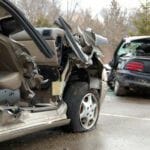Keyless Equals Dangerous
May 18, 2016 / Product Injury
Do you have a keyless ignition system in your car? It’s likely you do if you drive a newer, higher-end model car. Carmakers from Hyundai to Mercedes-Benz now offer the system in their cars; they are standard issue in 245 automotive models.
For those who’ve never experienced keyless ignition, it is also known by some as “push-button-start.” Inside the car is a button you push to start the car—no more ignition key—but the button will not start the car unless you have the proper “smart access” key fob. Here’s how it works: The key fob sends a coded signal at intervals. If the coded signal registers with a computer in your car once it comes within a certain distance range, the computer activates several automotive systems, including the ability to start the car. If a key fob’s signal does not match, the car will not start, and any attempt to start it may well trigger an alarm.
Great security precautions, right? But think about this: No precautions exist when it comes to stopping the engine. The key fob plays no role in turning off the car, unlike turning and removing a physical key. Some consider this a design flaw, partly because the flaw has led to over a dozen deaths. Just for perspective: the deaths from faulty Takata air bags have yet to reach a dozen.
Why Are People Dying?
It’s not what you’d think—it’s not cars running over people, or the like. Instead, it’s people not realizing that the engine is still going. Instead, they park the car in their garage, shut the outer garage door, go inside their homes, and then die quietly from the carbon monoxide (CO) that seeps into their home from the running car in the closed-up garage.
Carbon monoxide is odorless and puts people to sleep, replacing oxygen in their blood with CO molecules. It’s been shown that, in this situation, CO levels rise to lethal ones after only a few hours. If the car has a full tank of gas, it could run for a long, long time, and easily poison people inside their homes.
So far, at least 13 deaths (and perhaps as many as 19), with a good two dozen “close calls,” have been attributed to not turning off the engine.
What Can I Do?
First, if you have keyless ignition in your vehicle, do what you can to remind yourself to turn off the engine. The writer of one article about the topic revealed that forgetting to turn off his car had happened to him. He now puts his key fob in the cup holder to remind himself to hit the ignition button and kill the engine.
Second, if your car uses an audible alert to inform you that the engine is still running, pay attention to it. But you may have to listen carefully. The National Highway Traffic Safety Administration (NHTSA) has been working to make alert systems mandatory. However, automakers have objected because they think the desired volume of the alerts is too loud.
A number of suits have been filed against automakers. One class action suit claims that the risk of CO poisoning has been deliberately hidden by carmakers. The suit demands that, in the future, cars come with an “auto off” feature that would stop the engine if it idles for a long period of time.
Serving accident victims in Indiana since 1981.
At Stephenson Rife, we have proven experience in helping people hurt in Indiana by defective automobiles. If you have experienced a problem with a potentially dangerous, defective, or previously recalled motor vehicle or one of its components, call Mike Stephenson today. Keep in mind that in Indiana there is a statute of limitations – or a deadline – for filing personal injury claims, so it is unwise to delay. Don’t lose the opportunity to obtain the money you need to put your life back on track and to make your family’s future financially secure. Call Mike for a free initial consultation at 1-317-825-5200 or contact us using our online form. Hand the worry over to us and let our resources back you up.

 Brady Rife has developed a diverse civil litigation practice for plaintiffs throughout Indiana. Brady is heavily involved in serious personal injury matters, complex business and commercial disputes, and insurance litigation in state and federal courts. Brady has successfully tried several jury trials and bench trials as lead counsel and has also briefed multiple cases before the Indiana Court of Appeals. [
Brady Rife has developed a diverse civil litigation practice for plaintiffs throughout Indiana. Brady is heavily involved in serious personal injury matters, complex business and commercial disputes, and insurance litigation in state and federal courts. Brady has successfully tried several jury trials and bench trials as lead counsel and has also briefed multiple cases before the Indiana Court of Appeals. [ 